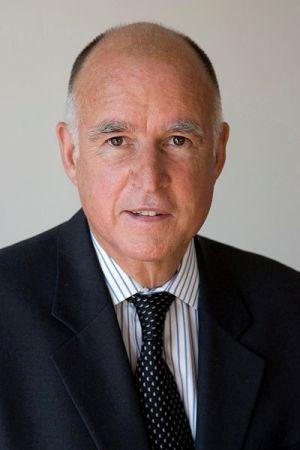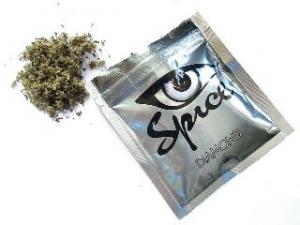California Gov. Jerry Brown has signed a bill "realigning" corrections in the state, but that's just the tiniest of baby steps toward fixing an out of control prison system. How about some real sentencing reform?
We review a book on Colombia and US drug policy seen through a lens focused on American contractors and Colombian politicians kidnapped by the FARC.
It may be up to Democratic Gov. Bryan Schweitzer to save medical marijuana in Montana. Only a procedural vote is left before the legislature repeals the voter-approved law.
Delaware has just moved a giant step closer toward becoming the next medical marijuana state.
The Illinois House has turned back a bid to permit farmers there to apply to grow hemp. Opponents cited the federal ban on hemp production and law enforcement's inability to tell the difference between hemp and weed.
A move to legalize weed through the legislative process has died in Olympia, but some are acting to put a legalization initiative on the November ballot.
Bills that would have decriminalized up to five ounces of weed or six pot plants were killed in a Maine legislative committee last week.
ProCon.org is a series of in-depth web sites presenting information and views on controversial issues, several of which relate to drug policy. The Chronicle is running a six-part series of info items from ProCon.org, and we encourage you to check it out.
More bloody days in Ciudad Juarez, and violence flares in Veracruz as well.
Missing drug money, meth-dealing sheriffs, cocaine-snorting crooked cops, cops turned robbers -- it's just another week on the corrupt cops beat.
A Florida group formed to protest the governor's order that state employees be subjected to random drug testing has come up with an apt, if smelly, form of protest.
New Zealand is responding to fake pot with regulation, not prohibition.
Events and quotes of note from this week's drug policy events of years past.
Faced with a staggering budget deficit and a prison overcrowding crisis, California Gov. Jerry Brown (D) and the state legislature have approved legislation that would shift responsibility for low-level, nonviolent offenders and parole violators from the state Department of Corrections and Rehabilitation (CDCR) to the state's counties. But sentencing and drug reform advocates say the measure merely shifts the burden of the state's corrections overcrowding from the state to the counties, fails to fund crime prevention services like drug treatment, and fails to include real sentencing reforms.

California Gov. Jerry Brown takes a tiny step toward corrections reform.
On Monday, Gov. Brown signed
Assembly Bill 109, the law shifting responsibility for many low-level offenders to the counties. The law is designed to stop the "revolving door" of low-level offenders cycling and recycling through the prison system, Brown said in a
signing statement.
"For too long, the state’s prison system has been a revolving door for lower-level offenders and parole violators who are released within months -- often before they are even transferred out of a reception center," Brown said. "Cycling these offenders through state prisons wastes money, aggravates crowded conditions, thwarts rehabilitation, and impedes local law enforcement supervision."
But the law will not go into effect unless and until the legislature approves and funds a community corrections grant program, something Republicans in the legislature have opposed.
"I will not sign any legislation that would seek to implement this legislation without the necessary funding," Brown said. "In the coming weeks, and for as long as it takes, I will vigorously pursue my plan to balance the state's budget and prevent reductions to public safety through a constitutional guarantee."
The cost of corrections in California is staggering. Gov. Brown's proposed Fiscal Year 2011-2012 budget funds the prison system to the tune of
$9.19 billion, nearly 7.2% of the entire state budget. And the war on drugs is responsible for a hefty portion of it.
The state prison system holds a whopping 144,000 inmates, including
more than 28,000 drug offenders and more than 1,500 marijuana offenders. Of those 28,000 drug offenders, 9,000 are there for simple drug possession at a cost of $450 million a year, or about $4.5 billion over the past decade. That figure doesn't include the cost of re-incarcerating parole violators who have been returned to prison for administrative violations, such as failing drug tests, so the actual cost of drug law enforcement to the prison system is even higher.
Not only does the prison system face a budgetary crisis, it also faces
a looming US Supreme Court decision that, by most predictions, will result in the state being ordered to reduce the prison population to 110,000, which is still about 30,000 over official capacity. The lawsuit before the Supreme Court alleges that California does not provide adequate medical and mental health services to its prisoners.
Gov. Brown's and the legislature's plan to shift low-level offenders out of CDCR and into county facilities does not address the core of the problem, advocates said.
"This plan is a shell game that would simply shift corrections costs from the state to the counties without addressing the real problem: California is locking up too many people for low-level offenses for too long," said Allen Hopper, police practices director with the
ACLU of Northern California. "The cost of mass incarceration is robbing the people of California of vitally needed services, including education and healthcare. What we need is real sentencing reform, such as shortening the sentences for simple possession drug crimes. It's time for California to stop wasting hundreds of millions of dollars incarcerating people who pose no threat to public safety."
"This plan would allow people to be locked up in local jails for up to three years, triple the current limit. Research consistently shows that longer sentences do not produce better outcomes. In fact, shorter sentences coupled with re-entry and prevention tactics are both more effective and more cost-effective," said Margaret Dooley-Sammuli, deputy state director in Southern California for the
Drug Policy Alliance. "We're talking about people convicted of low-level offenses, like drug possession, prostitution and petty theft, often related to a drug problem. But the plan doesn't include a dime for drug treatment or mental health care. In fact, the governor has proposed reducing funds for those services."
"Any California corrections reform must include sentencing reform," said Kris Lev-Twombly, director of programs at the
Ella Baker Center for Human Rights. "A felony conviction is a life-long sentence that should not be applied to low-level offenses. No matter how old the conviction, people with a felony on their record will face significantly diminished employment opportunities and much lower lifetime earnings. They may also be prohibited from accessing student loans, food stamps and other public assistance. This works against individual, family and community well-being and public safety."

San Quentin Prison -- no room at the inn. (Image via Wikimedia.org)
The bill signed into law by Gov. Brown is not sentencing reform, but sentencing reform is what is needed, said Dooley-Sammuli. Decriminalization of drug possession is the goal, but legislators aren't ready to embrace that yet, she said. In the meantime, there are other options.
"We want the legislature to reduce the penalty from a felony to a misdemeanor," she said. "We don't think the legislators are at the point where they understand the real harms that come to drug users, their families, and their communities because of the criminal penalties for drug use, but we think they do understand there is no reason why the penalties should be as severe as they are. The common ground is that they cost too much money and they do damage because of the burden of a felony conviction."
Advocates are continuing to push for real sentencing reform in California, said Dooley-Sammuli. "This would be a very good year for it," she said. "The critical thing is for the legislature to understand that there are additional cost savings to be had by reducing these low-level felony offenses to misdemeanors, with no threat to public safety, but with positive advantages for reentry success. They think that this realignment solves the problem, but this is not sentencing reform. Incarcerating people in county jails instead of state prisons is not sentencing reform."
But even as reformers continue to fight for sentencing reform, Gov. Brown and the legislature still have to figure out how to pay for the shift from state prisons to county jails. Brown has been pushing for a special election in June to give voters the chance to approve tax increase extensions, but he needs support from Republicans, and that doesn’t appear to be there. If that doesn't happen, it may appear on the November ballot as an initiative, but the tax extensions expire July 1, and a November vote would require voters to increase taxes, not a popular notion these days.
"Funding is not imminent," said Dooley-Sammuli. "But the deal has been struck. If they can get the Republicans or the voters to agree to tax extensions, this is the plan Democrats want for realignment.
And speaking of funding not being imminent, Gov. Brown has proposed zero increases for community-based drug treatment and actual cuts to drug treatment programs within the CDCR. That would affect treatment for both prisoners and parolees.
"He is talking about reducing access to services even as we face a major shift in how corrections works in this state," said Dooley-Sammuli. "That's really stupid."
It has become increasingly evident that California can't afford its drug war. Gov. Brown and the legislature have attempted to craft a fix, but the fix will leave the system just as broken as ever. Now, the state's political elite has to understand that half-measures won't solve the problem. If they're not ready for decriminalization or legalization, it is at least time for de-felonization.
back to top
Hostage Nation: Colombia's Guerrilla Army and the Failed War on Drugs, by Victoria Bruce and Karin Mayes, with Jorge Enrique Botero (2010, Alfred E. Knopf Publishers, 315 pp., $26.95 HB)
Hostage Nation is a great read, but its title is something of misnomer. What the book is really about is the capture of four American contractors by FARC guerrillas after their plane went down on an anti-coca pesticide-spraying mission in 2003. One was executed by the FARC at the scene; the others spent more than five years in captivity in the jungles of Colombia before being rescued by the Colombian military in a stunning charade in which Colombian soldiers tricked rebels into delivering their hostages, who also included the famous former presidential candidate Ingrid Betancourt, into their waiting arms.
In a sense, though,
Hostage Nation is a synecdoche for Colombia's experience fighting its own leftist guerrilla insurgency -- the longest-lived insurgency in the hemisphere, now in its 47
th year -- as well as fighting America's war on drugs. In a very real sense, Colombia has been a hostage nation -- held hostage by its own internal divisions and American drug war geopolitics, as well as seeing hundreds, if not thousands of its citizens literally held hostage, taken captive to be used as bargaining chips by the FARC in its relentless struggle against the Colombian state.
And while, until the very last chapter,
Hostage Nation does not directly confront US drug policies in Colombia or their failures, its briskly paced narrative illuminates -- at times, starkly -- just what those policies have wrought. At the beginning, the book opens a window into the murky world of American defense contractors and subcontractors working for the State Department in its efforts to poison the coca crop from the air. Those contractors, like Northrup Grumman, were perhaps the primary beneficiaries of Plan Colombia, gobbling up hundreds of millions of dollars in lucrative spraying contracts at taxpayer expense.
Hostage Nation also presents a critical, but not completely unsympathetic portrayal of the FARC, a group now commonly caricatured as little more than drug trafficking terrorists. They do profit off the coca and cocaine trade, of course, as the authors show, and they have committed numerous acts that could be qualified as terrorism. But even though now staggering militarily and politically, the FARC continues to be a stolidly Marxist organization in a world where Marxism is dead (although someone might want to let India's Naxalites know that). The authors provide hints of the violence, injustice, and revolutionary fervor out of which the FARC emerged.
They tell the tale of the FARC in part through recounting the travails of the captured American contractors and others the guerrillas considered POWs -- latterly including elected officials -- in a deadly game where people were pawns whose lives and freedom were to be bartered. While mostly not sadistically cruel to their captives, the FARC was not very nice, either. And its policy was to kill captives on the first hint of an attempted rescue, something it did at least twice, once in a false alarm.
But prisoner exchanges had gone off successfully before, and the FARC wanted some of its people in exchange for the high-value Americans and the high-profile Betancourt. Unfortunately for FARC plans, the post-911 Bush administration had absolutely no interest in "negotiating with terrorists," and then Colombian President Uribe followed suit. Of course, that stance was also unfortunate for the American contractors, who quickly dropped from public notice.
As the war on drugs morphed into the war on terror in Colombia, the authors make clear that they see the other main beneficiary of Plan Colombia as the Colombian military. Thanks to training and military assistance from the US, the Colombian military under Uribe and then Defense Minister (now President) Juan Manuel Santos, improved its fighting abilities dramatically. More importantly, the Colombian military sharply improved its intelligence capabilities, leading it to achieve a number of lethal blows to the FARC leadership and enabling it to salt the FARC with spies when the rebels lowered their standards in a mass recruiting drive at the turn of the last decade.
The Colombian military has probably strategically defeated the FARC, but at great cost to the country's civilian population, which has seen tens of thousands killed and hundreds of thousands turned into refugees in their own country under onslaughts from the military and its erstwhile allies, the drug trafficking rightist paramilitaries.
Hostage Nation only hints at that reality.
But its final chapter is a scathing attack on US drug policy in general and in Colombia in particular. The US has spent, and continues to spend, billions to repress the coca and cocaine traffic, and has had middling results at best, while sowing political violence, criminality, and environmental destruction, the authors assert. And they warn that the US is on course to embark on a similar drug war policy disaster in Mexico.
As an in-depth, sustained account of US drug policy in Colombia, the history of the FARC, or the politics of kidnapping,
Hostage Nation doesn't quite make it. But it is an engaging read that does provide some real insights into Colombian reality and is a well-informed contribution to the popular literature on the subject.
back to top
The Montana Senate voted 29-21 in favor of a bill, House Bill 161, repealing the state's voter-approved medical marijuana law last Thursday. It needs one more procedural vote to clear the chamber. The measure has already passed the House.

medical marijuana bags (courtesy Daniel Argo via Wikimedia)
Thursday's repeal vote came after increasingly fractious wrangling among legislators over efforts to regulate -- not repeal -- medical marijuana in Montana blew up last Wednesday. Senate Majority Leader Jeff Essmann (R-Billings) had crafted a bill to regulate the industry,
Senate Bill 423, and that bill sailed through the Senate on a 37-13 vote. But the Senate twice failed to muster the two-thirds majority needed to suspend the rules to allow the bill to be voted on twice in one day in order to meet a legislative deadline.
That left an opening for Senate repeal advocates. After the first vote to suspend the rules on SB 423 failed, Sen. John Brendan (R-Scobey) blew the repeal bill out of the Senate Judiciary Committee, where it had previously been stalled on a tie vote after passing the House.
If the bill passes on the final procedural vote, it would then go to the desk of Gov. Bryan Schweitzer (D). If he were to sign the bill, that would mark the first time any medical marijuana state has turned back the clock.
But Schweitzer's signature is by no means a done deal. In previous comments on the subject,
Schweitzer said he wanted to see the state's law reformed, not repealed.
back to top
A bill that would make Delaware the next state to legalize medical marijuana passed the Senate on a convincing 18-3 vote last Thursday. The measure now goes to the House.

Medical marijuana is moving at the state capitol in Dover (Image via Wikimedia.org)
The bill,
Senate Bill 17, would allow qualified patients to obtain marijuana from state-licensed and -regulated compassion centers, which would grow it for them. Patients would not be able to grow their own, but would be allowed to purchase three ounces every two weeks and possess up to six ounces at a time. The legislation proposes at least one compassion center in each of the state's three counties within a year of enactment, but does not cap the number of centers.
The bill was approved after it was amended to lower the minimum age for qualifying patients from 21 to 18. Other states with medical marijuana laws allow patients of any age to use medical marijuana.
Proponents of the bill, which is based on model legislation prepared by the
Marijuana Policy Project, pointed to studies suggesting that marijuana can alleviate pain, nausea, and other symptoms. Conditions that are covered include multiple sclerosis, post-traumatic stress disorder, glaucoma, and Lou Gehrig's disease.
"It's really a compassion bill," said chief sponsor Sen. Margaret Rose Henry (D-Wilmington) during debate on the bill.
"I do believe we have an opportunity to alleviate pain and suffering in patients with certain medical conditions," said Sen. Michael Katz (D-Centreville), a physician.
The three "no" votes on the bill all came from Republicans, such as Sen. Colin Bonini of Dover, who said he thought the measure sent the wrong message. "We're saying marijuana is medicine, it's okay, and how many kids will internalize that message and start on the path to drug abuse?" asked Bonini.
Bonini also attempted to use the involvement of the Marijuana Policy Project as a club against passage of the measure. The group's stated goal is marijuana legalization, he said. "If you don't think this is step one toward legalization... I say you're sorely mistaken," he told fellow lawmakers.
But such rhetoric failed to sway his Democratic colleagues and most of his Republican colleagues. If the House follows the Senate's lead, Delaware could soon be the 16
th medical marijuana state.
back to top
A bill that would have allowed Illinois farmers to get permits to grow hemp was stopped dead in a House vote last Thursday. The bill, House Bill 1383, was defeated 28-83.

Industrial hemp in France produces oils and fiber. (Image via Wikimedia.org)
The bill was sponsored by Rep. Ken Dunkin (D-Chicago), who emphasized hemp's environmental advantages and broad range of potential uses. "This is part of the new green movement across the nation," Dunkin said. "This will put Illinois ahead of most states."
The measure also had the support of the Illinois Farm Bureau. "There's a potential it [industrial hemp] could be a viable specialty crop," said bureau director of state legislation Kevin Semlow. "It was grown in the state up until the '40s."
Although marijuana and hemp were criminalized federally in the 1930s, farmers were encouraged to grow hemp by the federal government during World War II, when other sources of fiber were in short supply. But after the "Hemp for Victory" interregnum, hemp prohibition returned.
While hemp and hemp products may now be imported into the US, it remains illegal for farmers to grow the low-THC cannabis cultivar. Illinois imports $30 million worth of hemp a year, Dunkin said.
Opponents cited the federal government's classification of hemp as a controlled substance. A state law allowing for hemp production would put the state in conflict with the federal law, they argued.
"I would suggest a resolution asking the federal government to move it from Schedule One to Schedule Two so we could do more things, make the kind of distinctions between the plants (hemp and cannabis)," said Rep. Mike Fortner (R-West Chicago).
Downstate Republicans cited law enforcement opposition to the measure. "I had a call from [Sangamon County] Sheriff Williamson, and he asked me not to support it," said Rep. Rich Brauer (R-Petersburg).
Sangamon County Chief Deputy Jack Campbell told
The State Register-Journal that legalized hemp production would make it harder to find illicit marijuana. "Like with medical marijuana, there will probably be abuse with it, and it would probably be a nightmare to control," Campbell said.
Despite the repeated insistence by US law enforcement spokespersons that hemp production would provide cover for illicit marijuana production (and their implicit acknowledgement that they are unable to tell the difference), that has not proven to be the case in Canada and Western Europe, which have legalized hemp production without any problems of that nature.
According to the industry group
Vote Hemp, nine states have passed legislation removing barriers to hemp cultivation and eight more have passed resolutions supporting legalized hemp production.
back to top
A bill that would have legalized marijuana in Washington state has died. It failed to move out of committee by Friday, a legislative deadline for action.

Will voters take matters into their own hands now? (Image via Wikimedia)
The bill,
House Bill 1550, sponsored by Rep. Mary Lou Dickerson (D-Seattle), would have legalized the possession and sale of marijuana, with sales regulated by the state Liquor Control Board. The bill would have imposed a 15% per gram tax on marijuana sales, which supporters said would bring hundreds of millions of dollars into state coffers in coming years.
The bill had the support of the entire Seattle legislative delegation, as well as the
Seattle Times editorial board. But that wasn't enough to move it out of committee.
The legislature's failure to act clears the way for an effort to take the issue directly to the voters.
Sensible Washington is already gathering signatures for a legalization initiative to go before the voters in November.
They need 241,000 valid signatures by July 8, a target they missed by some 50,000 signatures last year after failing to win the support of some key players in Evergreen State pot politics.
back to top
A pair of bills that would have decriminalized the possession of up to five ounces of marijuana or six pot plants died last week when the Criminal Justice and Public Safety Committee voted unanimously to kill them. Maine has already decriminalized the possession of up to 2.5 ounces.

No growing your own, you Mainers! (Image courtesy of the author)
The bills,
LD 750 (plants) and
LD 754 (ounces), were introduced by Rep. Ben Chipman (I-Portland). Passing them would be a matter of basic justice, he told the committee during a hearing last month.
"It is my fundamental belief that people who use marijuana for personal use on a recreational basis are not criminals," Chipman said.
But opponents, led by the Maine Prosecutors Association, said that Maine already had a progressive marijuana law. And the Maine Drug Enforcement Agency warned that the bill decriminalizing up to six plants would allow people to grow enough pot to impact street sales without threat of criminal charges.
back to top
Did you know that nearly 1 in 40 people in the US voting population are barred from voting due to criminal convictions? Read about it on felonvoting.procon.org, part of the ProCon.org family.
Follow Drug War Chronicle for more important facts from ProCon.org over the next few weeks, or sign up forProCon.org's email list or RSS feed. Read last week's ProCon.org blurb here.
ProCon.org is a web site promoting critical thinking, education, and informed citizenship by presenting controversial issues in a straightforward, nonpartisan primarily pro-con format.

back to top
by Bernd Debusmann, Jr.
Mexican drug trafficking organizations make billions each year smuggling drugs into the United States, profiting enormously from the prohibitionist drug policies of the US government. Since Mexican president Felipe Calderon took office in December 2006 and called the armed forces into the fight against the so-called cartels, prohibition-related violence has killed more than 36,000 people, including more than 15,000 last year. The increasing militarization of the drug war and the arrest or killing of dozens of high-profile drug traffickers have failed to stem the flow of drugs -- or the violence -- whatsoever. The Merida initiative, which provides $1.4 billion over three years for the US to assist the Mexican government with training, equipment and intelligence, has so far failed to make a difference. Here are a few of the latest developments in Mexico's drug war:

prohibition fuels violence (image via Wikimedia)
In Ciudad Juarez,
nine men and a woman were killed during an attack on a bar near the international bridge to the US. At least three car loads and as many as 16 gunmen arrived at the bar before entering and firing indiscriminately.
Some witnesses and internet posters later
accused federal police of complicity in the attack on the bar. By some accounts, federal police established a cordon around the area while the attack was still in progress, and some say that a federal police officers were in the bar as little as three minutes before the attack, allegedly threatening the owner to close. Some accounts also say federal police impeded municipal police who were arriving at the crime scene.
Between 621 and 632 people were killed in Ciudad Juarez during the first three months of 2011, according to statistics kept by researcher Molly Molloy.
Friday, April 1
In Ciudad Juarez,
four people were killed when gunmen attacked an outdoor food stand. Among the dead was the 10-year old son of the stand's owner. The shooting occurred in extremely close proximity to a school where children were playing in the yard, leading many nearby parents to grab their children and run for cover.
In total, 24 people were killed in a 24 hour period in Ciudad Juarez between Thursday and Friday.
In El Paso,
two people were convicted for kidnapping an American dealer in El Paso. The two men, Cesar Obregon-Reyes and Rafael Vega stand accused of kidnapping Sergio Saucedo because he lied to his suppliers about the date on which a 670-pound marijuana load was confiscated. Saucedo was later found in Juarez with his hands chopped off.
Sunday, April 3
In Veracruz,
six police officers were killed by a group of gunmen armed with AK-47’s. A message was left in a nearby patrol car calling the officers "traitors," although it is unclear what the perpetrators meant by this. The Mexican government has said that the criminal organization responsible is likely from the state of San Luis Potosi, although declined to say which organization they believe responsible.
Monday, April 4
In Tijuana,
two men were killed as they waited in line to cross the San Ysidro border crossing into the United States. Kevin Romero, 28, and Sergio Salcido, 25, were in their vehicle when a gunman approached their car and shot them both dead with a 9 mm handgun. The motive is unclear.
In Mexico City,
the government announced a plan to give rewards for information on suspected money laundering activities. Tipsters will be rewarded with up to 25% of funds or property that authorities seize. The Mexican government has in the past struggled to deal with money laundering and illicit cash flows.
In Acapulco,
two gunmen and a soldier were killed during an intense fire fight in the city’s Emiliano Zapata neighborhood. Additionally, a soldier and a police officer were wounded in the clash. Sometime during the 30-minute gun battle, gunmen set fire to a local market and auto repair shop, which were both completely destroyed. Nobody was injured in the blaze.
Tuesday, April 5
In Veracruz,
police discovered five bodies in an empty lot in the town of Carlos A. Carillo. All five had been badly beaten, tortured, and then shot once in the head.
[Editor's Note: We typically rely on El Universal to supply a weekly body count. They didn't provide one this week, so this week's figure is based only on our own research and may be revised upward.]
Total Body Count for the Week: 97
Total Body Count for the Year: 1,864
Total Body Count for 2010: 15,273
Total Body Count for 2009: (approx.) 9,600
Total Body Count for 2008 (approx.): 5,400
Total Body Count for 2007 (approx): 4,300
Total Body Count for Calderon's drug war through 2010: 34,849
Total Body Count for Calderon's drug war to date: 36,713
back to top
Missing drug money, meth-dealing sheriffs, cocaine-snorting crooked cops, cops turned robbers -- it's just another week on the corrupt cops beat. Let's get to it:

prohibition corrupts (image via Wikimedia)
In Paris, Tennessee,
the director of the 24th Judicial District Drug Task Force was suspended March 30 pending an investigation into missing drug money. Steven Lee, the director of the drug task force, was suspended with pay and a secretary within the task force fired, although the Henry County district attorney didn't say exactly why. He did say he called in the Tennessee Bureau of Investigation in early 2010 after $4,200 went missing from a drug seizure and the drug task force had no record of the money ever being seized. He said the investigation is continuing.
In Poughkeepsie, New York,
a retired Poughkeepsie police officer was arrested March 31 for allegedly tipping off drug dealers in exchange for cocaine. Retired officer David Palazzolo, 47, is accused of using departmental computers to learn the identities and locations of undercover narcotics officers and turning that information over to admitted cocaine in return for some of their product.
In Van Buren, Missouri,
the Carter County sheriff was arrested Saturday on methamphetamine distribution charges. Sheriff Tommy Adams, 31, went down after an investigation by the Van Buren Police, the FBI, the Missouri Division of Fire Safety, and the Missouri Highway Patrol. Adams' home burned down in January 2010, and authorities said at the time nothing suspicious was found, but they did not say if the fire prompted the meth investigation. An unnamed deputy sheriff was also arrested Saturday, but has not been charged. At last report, Adams was in jail trying to raise a $250,000 cash-only bond.
In Cincinnati,
a Cincinnati police officer was arrested Tuesday on charges of obstructing justice and unauthorized use of a computer. Officer Alvin Triggs was arrested by officers from the Regional Enforcement Narcotics Unit for an offense that took place January 28. The two counts are both felonies and carry maximum sentences of 2 ½ years each.
In Philadelphia,
a former Philadelphia police officer pleaded guilty Tuesday to helping accused drug dealers rob a man they thought was a drug courier. Christopher Luciano, 23, pleaded guilty to robbery, conspiracy, kidnapping, official oppression, and possession of a drug with intent to deliver. Luciano and a fellow 25
th District officer, Sean Alivera, 31, were arrested October 4. Alivera was scheduled to plead guilty on Wednesday. The pair went down after agents from the state Bureau of Narcotics Investigation heard from an informant that a Philadelphia drug dealer was bragging that Philadelphia police had helped him set up and rob drug couriers. Agents then set up a sting, and the pair bit. They are now looking at at least five years in prison and as many as 67. No sentencing dates have been set yet.
back to top
A new political action group formed to protest Florida Gov. Rick Scott's (R) new drug testing policy for state employees is sending a jar full of urine to Tallahassee to save state officials the bother of traveling south to the Florida Keys.

There's plenty more where this came from, governor. (Image via Wikimedia)
Last month,
Scott signed an executive order mandating random drug testing of state employees. The state legislature is also considering a bill that would require drug testing for welfare and food stamp recipients.
The newly formed Committee for the Positive Insistence on a Sane Society (PISS) said it was sending the urine sample to Scott to peacefully protest against his drug testing policy. It accused Scott of wasting tax dollars on unjustifiable intrusions into the privacy of state workers.
"In one breath our CEO professes to be focusing on cutting wasteful government spending and laying off tens of thousands of state employees, while at the same time he announces a program to drug test state employees without any legitimate basis for such an invasion of privacy," wrote attorney Robert Clinton in a PISS press release.
The sample will be "kept under lock and seal" until it can be transported to Tallahassee. "In this way, the committee will save the Florida taxpayers from the expense of paying for individual drug testing in Key West," according to the press release.
Florida Gov. Scott is not, of course, the only American politician calling for drug testing of various segments of the population. Bills calling for drug testing of welfare or unemployment recipients are active in a number of states this year. Perhaps other activists will emulate the example of PISS.
back to top
The government of New Zealand plans to regulate and restrict access to legal synthetic cannabinoids, government spokesmen said last week. Under the plan, synthetic cannabinoids could not be sold to people under 18, and they would face regulation of their packaging, marketing, and sales.

New Zealand takes a reasoned approach to fake pot. (Image via Wikimedia)
The government is following the advice of the
Expert Advisory Committee on Drugs, which reviews controlled drugs and other psychoactive substances and recommends how such substances should be classified. The committee found no basis for banning fake pot, but said it was unacceptable for the products to be available without regulation.
Products containing synthetic cannabinoids have appeared in markets worldwide in recent years, typically sold as "incense" under brand names including Spice and K2. A number of European governments have responded by banning the substances, as has the US DEA, which imposed an emergency ban earlier this year.
Americans states have responded similarly, with more than a dozen of them imposing bans before the DEA acted, and moves are afoot in other state legislatures this year to enact more bans. California, however, responded similarly to what is proposed in New Zealand, banning it only for minors.
Under the New Zealand proposal, in addition to the ban on minors, sales would be banned in places where minors gather and there would be restrictions on advertising. Fake pot products would have to be sold in child-resistant containers and would have to be labeled with the synthetic cannabinoids they contain.
Moving synthetic cannabinoids from an unregulated substance to a restricted substance under the Misuse of Drugs Amendment Act of 2005 will require parliamentary approval.
back to top
April 8, 1989: Miguel Angel Felix Gallardo is arrested in Mexico. Guillermo Gonzalez Calderoni leads a team of Federal agents who arrest the drug lord in a residential suburb of Guadalajara. Gallardo is imprisoned on charges relating to the kidnapping and murder of Enrique Camarena. His nephews, the Arellano-Felix brothers, inherit part of his drug-trafficking empire.
April 13, 1995: The US Sentencing Commission votes to equalize penalties for crack and powder cocaine quantities for trafficking and possession offenses, a proposal that would have become law on November 1 if Congress took no action. Attorney General Janet Reno urges Congress to reject it the next day.
April 11, 1997: Graham Boyd, an ACLU attorney representing a group of plaintiffs including eleven prominent cancer and AIDS physicians in San Francisco, presents to a federal judge the following statement: "The federal government has issued broad threats against physicians who might recommend marijuana to some of their seriously ill patients. These threats have gagged physicians and have impeded the responsible practice of medicine. We assert that doctors have the right to discuss medical marijuana with patients, and we are seeking clear guidelines for physicians who wish to do so."
April 9, 2002: NORML launches a $500,000 campaign featuring bus shelter signs and telephone booth posters carrying a quote from New York City Mayor Michael Bloomberg, who when asked whether he had ever tried marijuana said, "You bet I did. And I enjoyed it." NORML used Bloomberg as the centerpiece of its campaign to urge the city to stop arresting and jailing people for smoking marijuana. "Millions of people smoke marijuana today. They come from all walks of life, and that includes your own mayor," said NORML Executive Director Keith Stroup.
April 12, 2002: Canada's Toronto Sun reports that a recent study cites Ontario's indoor marijuana industry as the third largest agricultural sector in the province, a $1-billion industry surpassed only by dairy's $1.3 billion and beef cattle's $1.2 billion. Add to that the millions being harvested from outdoor crops and marijuana cultivation in this province moves into the top spot on the list.
April 10, 2003: In the wake of the federal conviction of medical marijuana grower Ed Rosenthal, US Rep. Sam Farr (D-CA) and 27 other members of Congress introduce H.R. 1717 (the "Truth in Trials Act").
back to top













